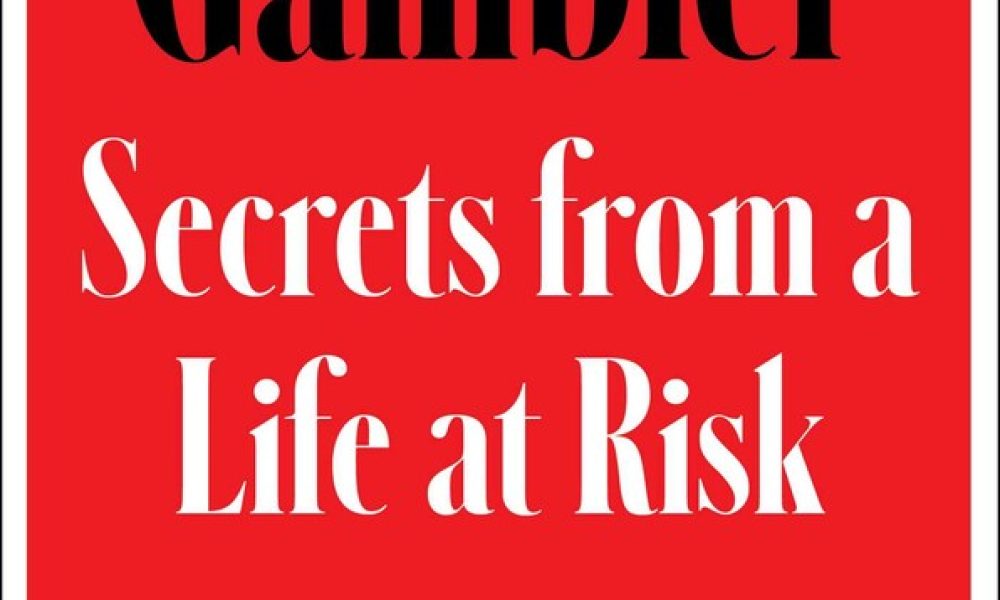It’s a big week in the history of gambling-related books with the publication of Billy Walters’s entertaining and controversy-courting autobiography Gambler: Secrets from a Life at Risk.
The book is already on the Amazon.com bestseller list, and if the mostly gushing press coverage and social-media salivation are any barometer, Walters’s roller-coaster rags-to-riches-to-prison-to-Hall-of-Fame tale is an odds-on favorite to remain there the rest of the summer. In fact, I suspect he’s betting on it.
Here are a few quick takeaways. Sports bettors and lovers of a good yarn riddled with references to wise-guy gamblers and mob guys such as Tony Spilotro will love it. Disgraced gambling baron Steve Wynn, whom Walters accuses of derailing his pardon on an insider-trading conviction, certainly will not. The two have been enemies a long time and Gambler will not be mistaken for a Hallmark friendship card.
Walters provides evidence in several chapters of just how much views and laws on gambling have changed in the past three decades and especially since the U.S. Supreme Court’s 2018 repeal of the Professional and Amateur Sports Protection Act, which brought sports wagering out of the shadows and into a legal and taxed multibillion-dollar business.
In the course of one lifetime, Walters has gone from the post office wall to the Sports Betting Hall of Fame. Over the years, he’s been chased by everyone from the local police to the Gaming Control Board and the FBI. He managed to survive all of it, even after taking a hit in a multimillion-dollar stock case for which he served three years of a four-year sentence before having his sentence commuted by then-President Donald Trump.
If you’re looking for a public act of contrition or admissions that he has spent his 77 years pushing the envelope of legality as a gambler and developer, you’ll have to look somewhere else.
With this book, Walters reminds friend and foe alike that the country boy from Kentucky has come out on top – and against substantial odds, he might add.
There’s another book I’d like to add to your August dog days reading list. It’s The Starlight Hotel-Casino, a novel by Nevada writer William A. Douglass. The son of a casino pioneer, he grew up in the gaming racket and had entrée to the decision-making end of several operations.
Although he’s best known today as a social anthropologist and the founder and former director of the Center for Basque Studies at the University of Nevada that bears his name, Douglass is also a member of the Nevada Writers Hall of Fame and remains a principal shareholder of the Leisure Gaming company.
Back when his father Jack Douglass was on a roll, the family was invested in Reno’s Cal Neva, Comstock, and the Riverboat casinos. Lucrative enterprises for most of a generation, pressure from a booming Las Vegas and the legalization of tribal casinos changed the course of downtown Reno’s glittering gambling halls forever.
Reno has done just fine by continuing to evolve and attract a new generation of gold seekers from the tech industry. Its best casinos continue to change, too, along with the market, rebranding and remarketing to a new crowd.
That changing dynamic is what makes Douglass’s novel, which is a shimmering reflection of his own family’s experience in the casino business, not only good reading, but worthwhile study.
The struggles of the Starlight will ring true for anyone who has worked in or operated a casino that has found itself behind the times and fading by the day. Its characters will remind even casual observers of the gaming industry of the essential human element that makes all those factories function.
Among the many nuggets in the novel is the factual reminder of the notorious elements of the expanding and changing casino industry, as Douglass reminds readers of the $400,000 bribe former Louisiana Gov. Edwin Edwards demanded of San Francisco 49ers owner and two-fisted high-roller Edward DeBartolo, Jr., for a casino license. Edwards wound up going to prison and DeBartolo wound up pleading guilty to failing to report a felony and agreed to pay a $1 million fine, accept two years of probation, and testify against the crooked Louisiana politician. He also was forced to sell his precious 49ers.
Unlike Billy Walters, DeBartolo received a presidential pardon from Trump.
In the end, these books by two Nevada hall of famers promise to stir lively conversations in many corners of a rapidly evolving industry.


